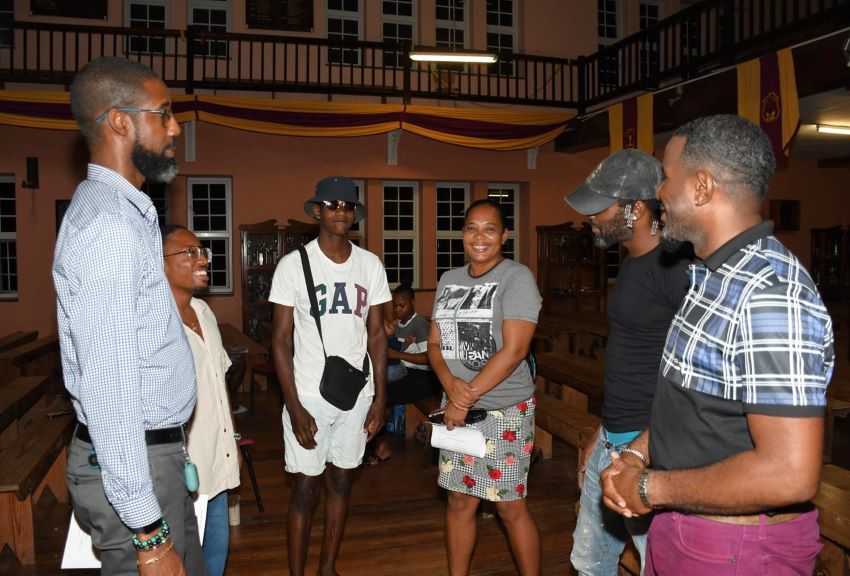
The pilot phase of the community component of the National Financial Literacy Programme has started.
National Coordinator of the Ministry of Energy and Business’ financial literacy initiative, David Simpson, disclosed that the City of Bridgetown; Lammings, St. Joseph; and Holders Hill, St. James, have been identified as the three communities that will receive financial literacy sensitisation.
Mr. Simpson further disclosed that his team had recently commenced the community engagement with some residents in The City who will have access to employment opportunities during the 2024 International Cricket Council (ICC) Men’s T20 World Cup.
“We thought it wise to start in The City and share valuable information with those working during this period. We’re very interested in ensuring that when they get these opportunities, even though they may be short stints, they can manage their money; understand the importance of getting a bank account and saving some, and also budget….
“So, we just want to sow those seeds of financial management and financial education before they get the exposure and start to get paid,” he explained.
Mr. Simpson added that there would be mentoring of households in each pilot community, and his team would be working with the Ministry of People Empowerment and Elder Affairs, and the Community Development Department.
He noted that a workbook similar to the ones created for primary and secondary schools was being developed for the community. Additionally, he pointed out that those involved in the programme would be assigned to work on a financial literacy household project.
Community Coordinator for the National Financial Literacy Programme, Kevin Henry, stressed the importance of this component, as well as sharing financial literacy information across the island to churches, youth groups, communities, and community organisations, among others.
“The programme also has a component where there’s going to be a level of coaching and financial tutoring available for families. So, a family can sign up to go through the process of financial learning, and they will have a coach assigned to them over a period of time, where they will go through the five elements of financial literacy, and then walk hand-in-hand with them as they implement some of those things within their households, and in daily practice.
“We hope to help change the culture towards money, where the person controls and dictates how money will flow and how he/she can even invest and create generational wealth for the family. We want to change habits and cultures, allowing people to realise that the concept of saving and investing does not mean going to the big target one time. It will start with small habits. So, if you can only save 25 cents a week, we start there and we repeat that habit over and over again,” Mr. Henry stated.
Mr. Simpson expressed the view that people have some financial and money management challenges at some point. “Ultimately, what we’re trying to do is to change mindsets and behaviours. So, we see this programme as very important, as it allows us to get in there to work closely with households and individuals to create the habits needed to change the mindset,” he explained.
Earlier this year, the pilot phase of the National Financial Literacy Programme was introduced in six primary and seven secondary schools.
